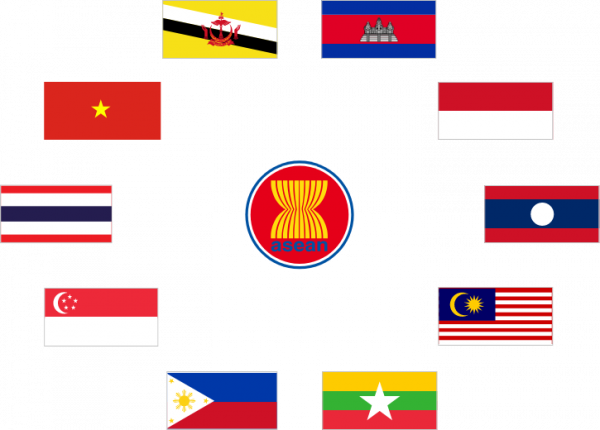This site
is mobile
responsive
Malaysia has a well-diversified economy and export structure, a supportive labour market, a track record of low and stable inflation, a robust and well-capitalized financial sector, and a positive net cash flow.

Malaysia’s climb to 27th place in the IMD World Competitiveness Ranking 2023 reflects its economic recovery, investment growth, and stable employment market. While there are challenges to address, Malaysia offers thriving opportunities for investment with its focus on talent development, digital innovation, regulatory reforms, and sustainable development.
-Richard Record, Lead Economist, Macroeconomics, Trade and Investments Global Practice, World Bank (2023)
Malaysia is well-positioned in one of the fastest-growing economic regions in the world. The South-East Asia region has recorded average GDP growth of 5.3% per annum over the last 20 years.
![]()
The average ASEAN GDP growth is expected to expand by 5.2% in 2022 and 5.3% in 2023
(Asian Development Outlook, 2022)

Centre of South-East Asia
Centre of South-East Asia – Market access of over 660 million people with combined GDP of US$3.3 trillion (ASEAN Stats, 2022)

Well-connected to major ports in Asia
Reaching Mumbai, India within 6 hours and reaching Beijing, China within 9 hours
![]()
Next to one of the world’s busiest shipping lanes
Straits of Malacca provides access to global supply chains via 2 key ports.

Malaysia is a market-oriented economy with 16 Free Trade Agreements
Creating potential market size of 4 billion people

Lower cost of doing business
Almost 99% of products in ASEAN have zero tariffs

Attract 31% of Global FDI
Global market size is estimated to attract 31% of Global FDI

World’s 3rd Largest Workforce
ASEAN has the world’s third largest labour force and a growing middle class – a powerful engine for long term growth

Largest FDI inflow of any emerging market region
Continues to be an engine of growth for FDI in Asia and globally (UNCTAD’s 2021 Investment Trends Monitor)
Once reliant on agriculture and primary commodities, our economy has transformed into an export-driven and diversified economy, fuelled by high technology, innovation as well as knowledge-based and capital-intensive industries.
Our mature and integrated ecosystems have nurtured a strong local supply chain that supports the long-term growth of businesses.

Malaysia’s manufacturing sector plays an important role in the global supply chain while domestic activities are well represented by the services sector, which has gained greater prominence in the past two decades. We continue to be an attractive location for businesses across various industries. Malaysia’s diversified sectors offer abundant opportunities for investors expanding into alternative markets.
Source: Malaysia: Investment Performance Report, 2022
Visit link to learn more on Malaysia’s Investment Performance
Malaysia has already signed and implemented various free trade agreements (FTA), which include bilateral FTAs with Japan, Pakistan, India, New Zealand, Chile, Australia and Turkey. On the ASEAN level, Malaysia has regional FTAs through the ASEAN Free Trade Agreement (AFTA) with China, Korea, Japan, Australia, New Zealand and India.
This creates a potential market size of more than 4 billion people globally. Up to 99% of total products have 0% import duties under Malaysia’s FTAs with ASEAN.
Reduced trade barriers drive down business costs, granting companies preferential access to seize growth opportunities in one of the world’s largest trading blocs.

Malaysia is one of the twelve (12) signatory nations of the Regional Comprehensive Economic Partnership (RCEP), the world’s largest free trade agreement – representing 30% of the global population and 30% of global GDP and is expected to rise up to 50% by 2030. This agreement is set to foster cooperation, drive economic recovery, and create a liberal and competitive investment environment. With RCEP’s member countries among Malaysia’s top trading partners, it promises enhanced investment facilitation and investor aftercare, amplifying opportunities for growth.
RCEP seeks to create a mutually beneficial economic partnership as it aims to boost trade, investment, connectivity, and regional economic integration, driving the region’s recovery.
In addition to RCEP, Malaysia is also one of the 11 signatory nations of the Comprehensive and Progressive Agreement for Trans-Pacific Partnership (CPTPP). In this holistic free trade agreement (FTA), Malaysia collaborates with countries representing 13.4% of the global GDP. The CPTPP will place Malaysia in a strategic position and elevate the country’s competitiveness in the global arena by broadening its access to new markets such as Canada, Mexico, and Peru, which are not covered by any existing FTA.
Under the CPTPP, almost 100% of Malaysian exports to all CPTPP countries would enjoy duty-free treatment by 2033.
Take a look at how Malaysia stacks up against global competition.
Malaysia is one of the fastest growing nation in the region. Ranked among the top emerging markets for investment and recognised for its protection of investors as well as its responsiveness to facilitating business needs, Malaysia is the offshore base from which your company can prosper.
Top country in emerging Southeast Asia for foreign investment
(Global Opportunity Index 2023, Milken Institute)
Most competitive country in ASEAN
(IMD World Competitiveness Yearbook 2023)
Most innovative upper middle income economy in the world
(Global Innovation Index 2023, WIPO)
Most Competitive Emerging Market
(Agility Emerging Markets Logistics Index 2023)
Global Talent Competitiveness Index in Eastern, Southeastern Asia and Oceania
(The Global Talent Competitiveness Index 2023)
Top city in Asia Pacific Region, Kuala Lumpur
(Global Technology Industry Survey 2021, KPMG)
On infection management, vaccine rollouts and social mobility
(Nikkei COVID-19 Recovery Index 2021)
Top 20 Asia Fintech Hubs
(Asia Pacific Fintech Rankings Report 2022)
Most competitive country in the world
(World Competitiveness Yearbook 2023, IMD)